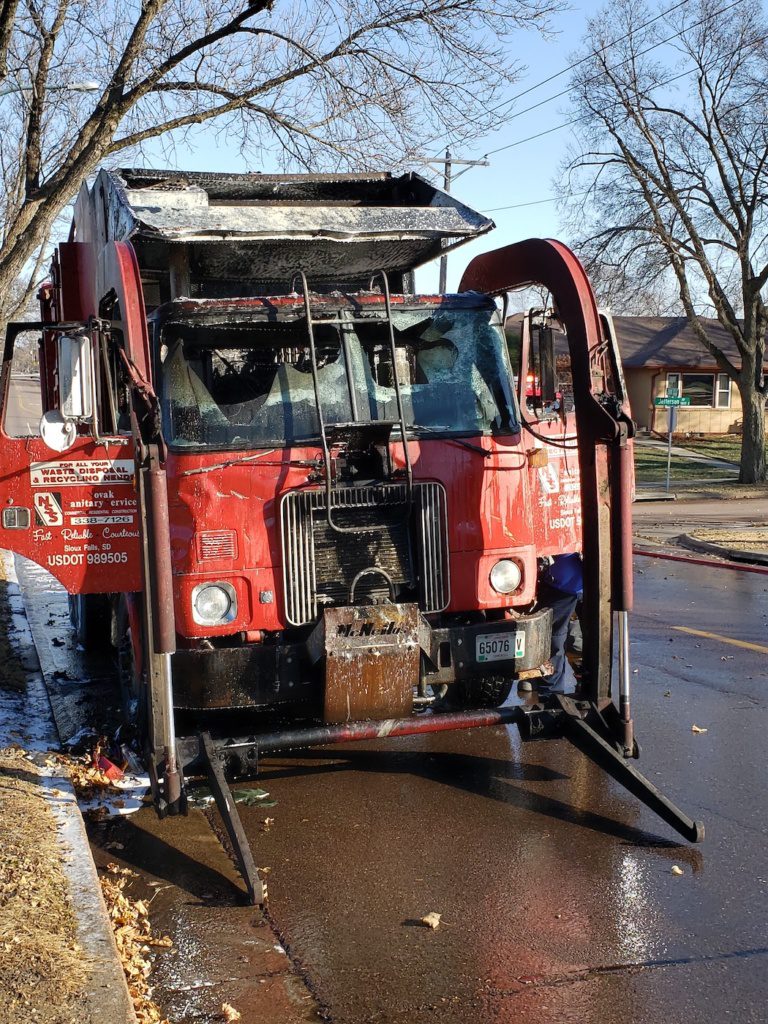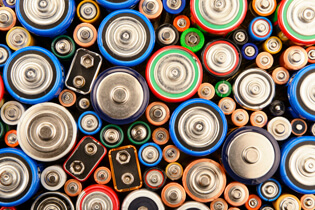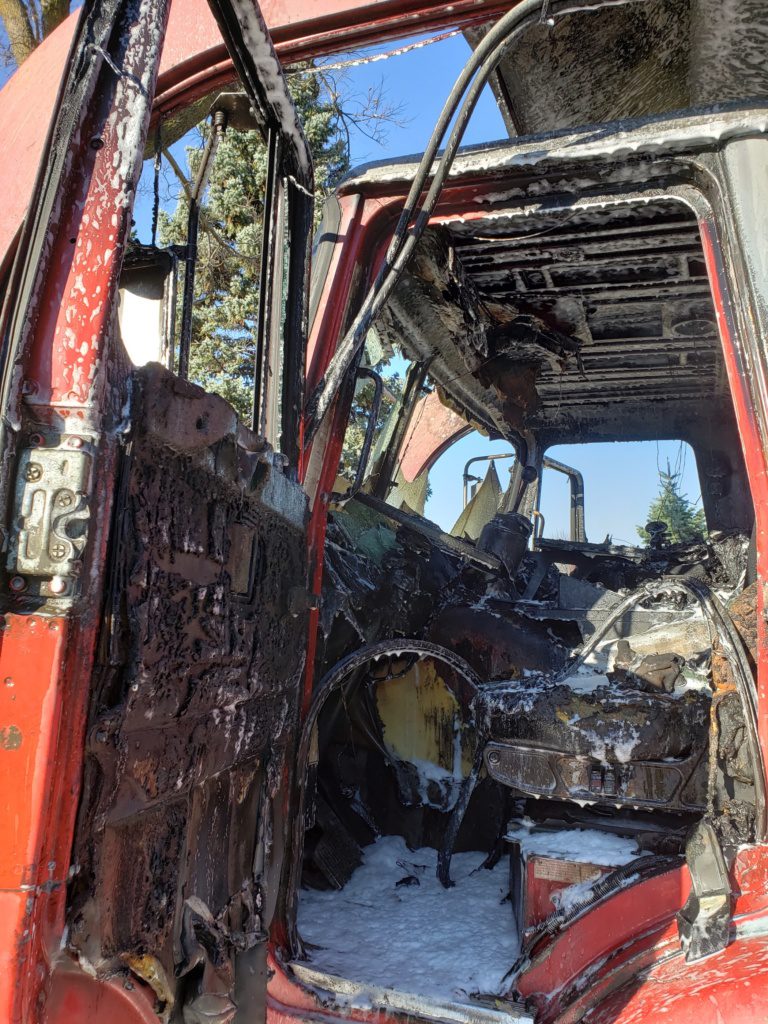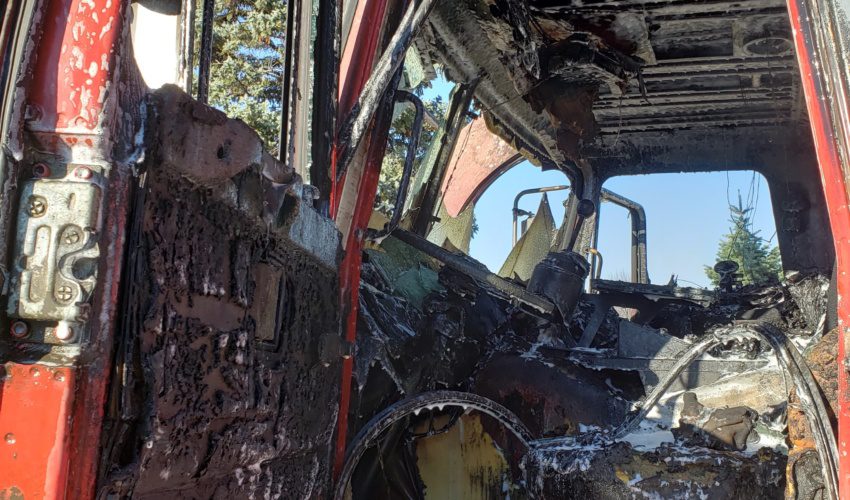Follow these steps before you throw out potential fire hazards
March 4, 2020
This paid piece is sponsored by Novak Sanitary Service.
Fire danger lurks year-round if you’re not disposing of common household items safely.
Novak Sanitary Service found that out firsthand recently in the area of 41st Street and Ellis Road when something that had been thrown away started a fire in a load of garbage in the truck.
“As the driver was driving, he saw smoke, and he had to pull over and eject the load onto 41st Street,” operations manager Michael Keeran said.
“Over the last year, we’ve had three truck fires as a direct relation to what’s been thrown away.”
Fortunately, no one has been hurt. But one truck was destroyed, and Novak leaders want to make sure drivers and the community stay safe by raising awareness.
Whether you’re spring cleaning, getting back to barbecuing or using a fire pit, here are some key things to remember
Battery disposal
This is a big one.
If you use lithium batteries for your laptop, smartphone or other items in the home or office, the danger comes in throwing them away with the rest of your trash.
“When they’re compacted, and the lithium hits air, it ignites,” Keeran said. “Or sometimes just the pressure itself can cause them to explode. That’s just the nature of lithium batteries. They work well and provide a lot of power, but they definitely are hazardous when disposed of improperly.”
Best Buy allows free disposal of lithium batteries right inside its door.
“If it’s a small battery like for a cellphone or power tool, it’s especially convenient,” Keeran said.
But for disposal of other batteries, visit the city’s Household Hazardous Waste Facility at 1015 E. Chambers St. or click here for information.
Several different types of batteries are accepted:
- Lead-acid and sealed lead-acid: car, motorcycle, golf cart, ATV, jet ski, wheelchair, weed trimmer and security camera.
- Button (silver-oxide or mercury-oxide): hearing aids, watches, greeting cards, medical devices, small remote controls, small calculators.
- Nickel-cadmium and nickel metal hydride: camcorders, power tools, two-way radios, cordless phones.
- Lithium and lithium ion: laptops, cellphones, digital cameras, MP3 players.
- Alkaline: clocks, toys, calculators, handheld gaming devices, flashlights, remote controls. It is acceptable to place alkaline batteries in your trash; however, the Household Hazardous Waste Facility also accepts them. Common ones made after 1993 are no longer considered hazardous.
After the fire or fireworks
Fireworks and fire pits pose danger when their remnants are disposed of without being fully extinguished.
“The truck we lost was due to fireworks,” Keeran said. “They ignited and under the compression ended up lighting the truck, and it was a truck we couldn’t save in an area where we couldn’t eject the load. The fireworks ended up burning down pretty much the entire truck.”
Fireworks also can end up in business dumpsters, he said.
“You have a party, have fun, but make sure it gets cleaned up. It’s very important to make sure they’re out. And don’t ever dispose of live fireworks. Those have to go to the Household Hazardous Waste Facility.”
Ashes or hot coals from grills or fire pits are dangerous too.
“It’s OK to throw them out, but make sure it’s out long enough. Feel it so there’s no heat whatsoever. Bag it, and store it for a week before you put it in the garbage,” Keeran said.
Chemical dangers
Hazardous chemicals also pose a fire danger. Most propane tanks should not be disposed of in the garbage but taken to one of many swap sites.
A small one, like those used in a compact grill, can be thrown away as long as it’s completely empty.
Gasoline can’t be put in the trash, Keeran said. “It’s flammable, including in old power equipment. So if old equipment is going to be disposed of, all the oil and gas needs to be drained out first.”
Helium tanks can be disposed of if the valve is open and they are depressurized.
Other chemicals used in daily household activities also can be dangerous, he added.
“We’ve had fires related to chemicals that weren’t supposed to be mixed. That’s another hazard. Throw a couple chemicals together that might not be harmful on their own and they could have a chemical reaction and explode, so it’s important to make sure household hazardous chemicals are disposed of properly.”
And Novak drivers never know when something that’s been disposed of might spark a serious problem. A truck fire in a residential or heavily traveled area can be especially dangerous.
“We really want to get this message out for the safety of our community and our drivers,” Keeran said. “We want to be good stewards, get in and get out, and get everybody’s trash picked up as safely and environmentally friendly as possible.”
To learn more about what’s accepted at the Household Hazardous Waste Facility, click here.










